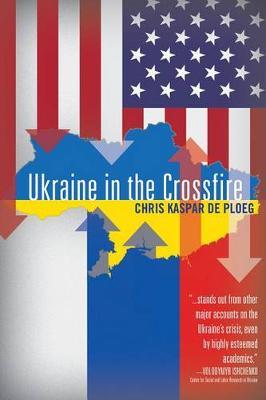Ukraine in the Crossfire

Ukraine in the Crossfire
With the nation's eyes turned towards Russia, the EU and IMF have successfully pressured Ukraine into adopting far- reaching austerity programs, while oligarchic looting of state assets and massive tax-avoidance facilitated by western states continue unabated. De Ploeg documents the local roots of the Donbass rebellion, the overwhelming popularity of Crimea's secession, and shows that support for Ukraine's pro-western turn remains far from unanimous, with large swathes of Ukraine's Russophone population opting out of the political process. Nevertheless, De Ploeg argues, the pro-Westem and pro- Russian camps are often similar: neoliberal, authoritarian, nationalist and heavily dependent on foreign support. In a wider exploration of Russo-Western relations, he examines similarities between the contemporary Russian state and its NATO counterparts, showing how the two power blocs have collaborated in some of their worst violent excesses. A far cry from civil or ideological clashes, De Ploeg argues that the current tensions flow from NATO's military dominance and aggressive posture, both globally and within post-soviet space, where Russia seeks to defend the status-quo.
Packed with shocking facts, deftly moving from the local to the international, from the
Descrierea produsului
With the nation's eyes turned towards Russia, the EU and IMF have successfully pressured Ukraine into adopting far- reaching austerity programs, while oligarchic looting of state assets and massive tax-avoidance facilitated by western states continue unabated. De Ploeg documents the local roots of the Donbass rebellion, the overwhelming popularity of Crimea's secession, and shows that support for Ukraine's pro-western turn remains far from unanimous, with large swathes of Ukraine's Russophone population opting out of the political process. Nevertheless, De Ploeg argues, the pro-Westem and pro- Russian camps are often similar: neoliberal, authoritarian, nationalist and heavily dependent on foreign support. In a wider exploration of Russo-Western relations, he examines similarities between the contemporary Russian state and its NATO counterparts, showing how the two power blocs have collaborated in some of their worst violent excesses. A far cry from civil or ideological clashes, De Ploeg argues that the current tensions flow from NATO's military dominance and aggressive posture, both globally and within post-soviet space, where Russia seeks to defend the status-quo.
Packed with shocking facts, deftly moving from the local to the international, from the
Detaliile produsului












